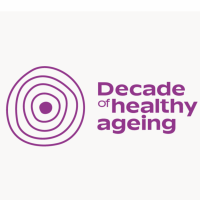The United Nations Decade of
Healthy Ageing, spanning from 2021 to 2030, represents a pivotal initiative
aimed at addressing the challenges and opportunities associated with the
increasingly significant demographic shift towards an ageing global population.
As societies around the world experience this transformative change, the UN has
recognized the need for a comprehensive and inclusive approach to ensure the
health, well-being, and dignity of older individuals.


The Decade of Healthy Ageing is anchored in the understanding that the implications of population ageing extend far beyond the realms of healthcare. It encompasses diverse aspects of life, including social, economic, and environmental factors. By designating this period as a decade of focus on healthy ageing, the UN seeks to mobilize global efforts to create a world that values and promotes the health and inclusion of older individuals.
One of the fundamental principles
underpinning the decade is the acknowledgment that ageing is a lifelong
process. Initiatives and interventions aimed at promoting healthy ageing
should, therefore, be implemented across the entire life course. This
life-course approach recognizes the significance of early investments in
health, education, and social support to ensure optimal well-being in later
years.
A central goal of the Decade of
Healthy Ageing is to encourage member states, non-governmental organizations,
academia, and the private sector to collaborate in developing and implementing
policies that foster age-friendly environments. An age-friendly approach
involves adapting infrastructure, services, and social structures to be
inclusive and accessible to people of all ages, with a particular emphasis on
the needs and rights of older persons.
Healthcare is a cornerstone of healthy ageing, and the UN aims to promote strategies that enhance the delivery of healthcare services to older individuals. This includes addressing issues such as prevention, early detection, and management of age-related diseases. It also underscores the importance of mental health and well-being, recognizing the impact of psychosocial factors on the overall health of older populations
The Decade of Healthy Ageing emphasizes the eradication of ageism and the promotion of social inclusion. Ageism, the stereotyping and discrimination against individuals based on their age, poses a significant barrier to healthy ageing. Efforts to challenge ageist attitudes and create inclusive communities are essential for fostering a society that values the contributions of older persons and ensures their active participation in various spheres
Furthermore, the UN encourages the exchange of knowledge and best practices among nations. Through collaborative efforts, countries can learn from each other's experiences, identify successful interventions, and tailor strategies to suit their unique demographic and cultural contexts.


To facilitate the global commitment to healthy ageing, the UN has set specific milestones and indicators for monitoring progress. Regular assessments of the implementation of policies and initiatives will contribute to refining approaches and ensuring that the goals of the Decade of Healthy Ageing are met.
We extend an invitation to researchers, healthcare professionals, and advocates to come together. Collaboratively, we aim to delve into pioneering research, exchange insights, and collectively navigate the path toward a more enlightened and compassionate approach to the objectives of the United Nations Decade of Healthy Ageing.
Achieving our goals and
objectives aligned with the United Nations Decade of Healthy Ageing
necessitates a united effort. Let's, as a global community, dispel the shadows,
enrich our knowledge, and raise the benchmarks of Healthy Ageing.

